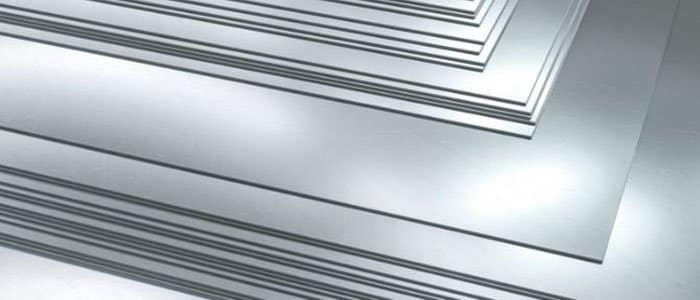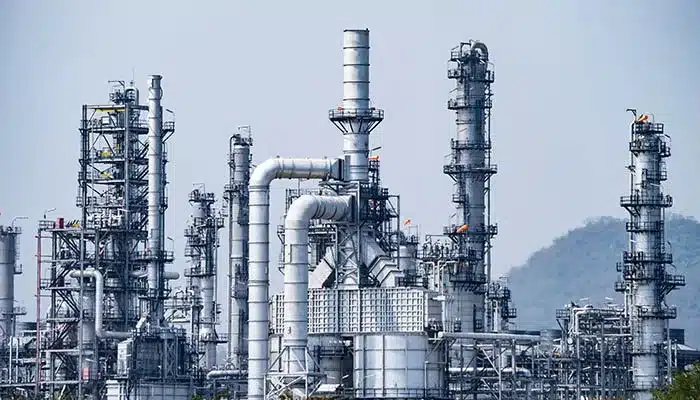Choosing the right superalloy for a demanding application can be a tough decision. Two of the most popular options, Inconel 718 and Inconel 625, often come up in the same conversation. They share a family name and some excellent properties, but they are designed to excel in different situations.
This guide will break down the key differences between Inconel 718 and Inconel 625, focusing on their composition, mechanical properties, and best-use cases. By the end, you’ll have a clear understanding of which alloy is the right fit for your project.
What is Inconel 625?
Inconel 625 is a nickel-chromium-molybdenum alloy known for its outstanding strength and exceptional corrosion resistance. Its primary advantage lies in its ability to perform in highly corrosive environments and extreme temperatures.
Key characteristics of Inconel 625 include:
- Superb Corrosion Resistance: It stands up remarkably well to both oxidizing and reducing environments, including seawater and various chemicals.
- Excellent Weldability: This alloy is known for being easy to weld, even in the as-welded condition, without requiring post-weld heat treatment to maintain its corrosion resistance.
- High Strength: It derives its strength from a solid solution of niobium and molybdenum, which prevents creep at high temperatures.
Common Applications for Inconel 625:
- Marine hardware and propeller shafts
- Chemical processing equipment (piping, valves, heat exchangers)
- Nuclear reactor components
- Aerospace exhaust systems and ducting
What is Inconel 718?
Inconel 718 is also a nickel-chromium alloy, but it is specifically engineered for high-strength applications. Its main selling point is its ability to maintain incredible mechanical strength and creep resistance at elevated temperatures, far beyond what Inconel 625 can handle.
Key characteristics of Inconel 718 include:
- Exceptional High-Temperature Strength: This is its defining feature. It maintains its strength from cryogenic temperatures up to around 1300°F (700°C).
- Excellent Creep-Rupture Strength: It resists deformation under long-term stress at high temperatures, making it ideal for turbine engines.
- Good Weldability: While weldable, it requires more careful control of the welding process and heat treatment to achieve its optimal properties.
Common Applications for Inconel 718:
- Jet engine and gas turbine components (discs, blades, casings)
- High-speed airframe parts
- Cryogenic storage tanks
- Polluted and sour gas well equipment
Head-to-Head: The Key Differences
To make the choice clearer, let’s compare them directly across several critical factors.
| Feature | Inconel 625 | Inconel 718 |
|---|---|---|
| Primary Strength | Corrosion Resistance | High-Temperature Mechanical Strength |
| Key Alloying Elements | Nickel, Chromium, Molybdenum, Niobium | Nickel, Chromium, Niobium, Aluminum, Titanium |
| Strengthening Mechanism | Solid Solution Strengthening | Precipitation Hardening (age-hardening) |
| Corrosion Resistance | Superior, especially in reducing environments | Very good, but not as robust as 625 in all settings |
| High-Temp Performance | Excellent up to ~1800°F (980°C) | Excellent strength up to ~1300°F (700°C) |
| Weldability | Generally considered easier to weld | Weldable but requires strict procedure control |
| Heat Treatment | Typically used in the annealed condition | Requires a specific aging heat treatment for max strength |
The most important takeaway from this table is the strengthening mechanism. Inconel 625 is strong right out of the solution anneal. Inconel 718 requires a two-step heat treatment (solution anneal followed by aging) to develop its full strength potential.
How to Choose: 625 or 718?
The decision comes down to the primary demand of your application.
Choose Inconel 625 if:
- Your main concern is corrosion. If the part will be exposed to seawater, harsh chemicals, or oxidizing agents, 625 is the superior choice.
- You need an alloy that is easy to fabricate and weld without complex post-weld heat treatments.
- The operating temperatures are high, but extreme mechanical strength at those temperatures is not the most critical factor.
Choose Inconel 718 if:
- Your main concern is mechanical strength at high temperatures. For turbine parts, high-stress fasteners, or aerospace components, 718 is unmatched.
- The part will be under significant constant stress (creep) at elevated temperatures.
- You have the capability to perform the required precipitation hardening heat treatment to unlock the alloy’s full potential.
Conclusion
There is no “better” alloy between Inconel 625 and Inconel 718—only the one that is better suited for a specific job. Think of it this way: Inconel 625 is the champion of corrosion resistance, while Inconel 718 is the champion of high-temperature strength.
Understanding the core requirements of your project—whether it’s fighting off a corrosive environment or withstanding immense stress and heat—will guide you to the right material. If you’re still unsure which path to take, the team at Daxun Alloys Co., Ltd. is always ready to provide technical guidance and supply the exact grade you need for a successful project.




